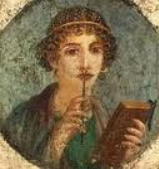This week I spent three days at a fantastic event known as the Ontario Library Association Super Conference with 5000 delegates, mostly librarians, and all of them lovers of the written word. It was brilliant.
I was there in my capacity as a 'day-jobber'. However, one of the perks of my work is that once a year I can shrug my cubicle for a few days to interact with a group of people whom it is a privilege to know.
Librarians know their stuff and are some of our most precious community resources. They help patrons of all ages with an infinite number of valuable things like research, job search, small business startup info, early learning etc. etc. The list goes on.
One thing they are very good at is readers' advisory. Sometimes people just don't know what to read, so they ask the librarian.
That seems like a regressive statement in the face of all they do, but to a writer and lover of fiction it's highly relevant.
While sitting in one of the crowded corridors between sessions, I bumped into someone who also happens to be an Eagles and Dragons fan and avid reader of historical fiction.
Big shout out to Jim!
We got to talking about historical fiction, of course, and some of our favourite reads. During our talk, he reminded me of something that I sometimes take for granted.
He said that historical fiction a wonderful way to learn about, and teach, history.
EUREKA!
This stuck with me afterward, resonated in my mind for the rest of the day. I remembered that this was one of the reasons I began writing historical fiction.
Historical Fiction is, if done well, the BEST way to learn about history. I believe that.
Take the Roman world, for example. I've been researching that period and writing in that world for years now. I think in that space and time so much that the lines between present and past become a little blurry.
And I love it!
But for the average person who doesn't know much about the Roman world, or the lives of people in ancient Rome, reading a work of historical fiction can be a very rich, rewarding and entertaining experience.
It can be far more engaging that the sad dry lectures of, I'm sorry to say it, far too many school and university educators who only end up turning students off of history.
Reading a well-researched work of historical fiction can teach the reader about everything from home life and food to politics, warfare and the events that shaped the world. You can get inside the head of a Caesar, or a slave.
The fact that historical fiction helps to connect you with the past on a visceral or emotional level, only helps to cement your knowledge even more.
But therein lies the great responsibility of the author of historical fiction - the author has the power to shape people's vision of the past, especially if their book is the reader's only exposure to history.
However, ancient and medieval history have come down to us with more holes than a gladiator's sparring post. So there will always be a need for the author to fill in the gaps.
I always try to do that honestly and make sure to say so in the author's note.
One of my greatest joys has been when a reader told me they learned so much about Roman history and life by reading one of my books. That made me feel fantastic.
I also felt good because I could rest easy in the knowledge that I had done my research so that someone could learn about the past in an accurate and entertaining way.
Historical fiction is indeed the best way to learn about the past. I know that owe much to authors such as Steven Saylor and Colleen McCullough for their brilliantly researched and written work. For those, and other novels like them, I'm grateful.
So, if ever there has been a historical fiction novel that helped to enlighten you and switch you on to history, no matter the period, be sure to let others know.
As ever, thank you for reading.



No comments:
Post a Comment